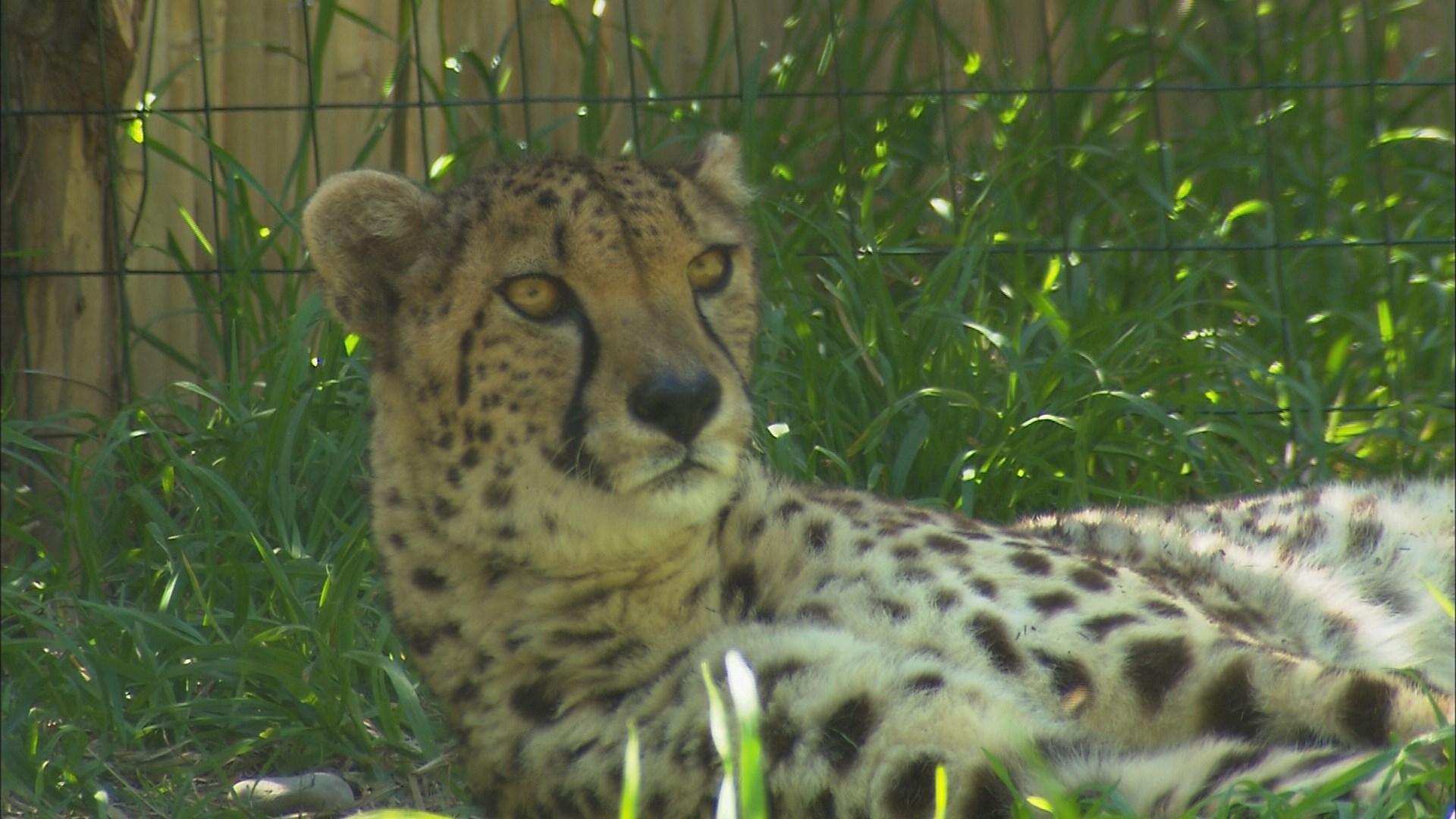SEATTLE - The call of an old friend puts nap time on hold at the Woodland Park Zoo. World renowned expert, Dr. Laurie Marker knows the sleeping cheetahs well. They come from Oregon's Wildlife Safari where she launched her career.
Back in the 1970's Dr. Marker developed the country's most successful breeding program. But, out in the wild, cheetahs were still dying at a rapid rate.
"And I went, 'why?', said Marker. "And, that big question mark is what inspired me to find out why."
Dr. Marker learned the farmers in Namibia, Africa were killing cheetahs by the thousands to protect their livestock and livelihoods. She lives there now, on a hundred acre reserve, home to the largest number of cheetahs in the world.
"So our success had been good, but it's not by telling the farmers not to kill the cheetah, but by giving tools to the farming community," she said.
Those tools include raising guard dog for the farmers to protect their livestock.
In her new book, "A Future for Cheetahs", Dr. Marker shares her progress and an inside look at what makes cheetahs worth saving.
Marker said, "They are the fastest land mammal , just imagine how they run, just one foot touching the ground at any given time. They can see, at times, up to two miles without binoculars. Their tail is like a rudder for balance, so they don't roll over and spin out at 70 miles per hour."
And, when cheetahs stop running, what do they do? Sleep.
"But, they are an animal that does sleep during the day," said Marker. "So, I encourage people if they want to see the cheetah moving around a little bit more to get here early in the morning. and then the cheetah will be looking around more."
In the middle of their afternoon nap, "Liz" and "Missy" perk up for their old friend.
For Dr. Marker, seeing them at home in the zoo's cheetah exhibit is a step in the right direction to save the species.
"The zoo plays a key role in spreading the message and the word, she said. "Hopefully saving the species for future generations is what keeps me going on a day to day basis."
The two cheetahs arrived at the Woodland Park Zoo last summer, but will head back to their long-term home at the Wildlife Safari in Oregon later this month. November 23rd is the last time to see them at the Woodland Park Zoo.
To find out more about Dr. Marker's work and her Cheetah Conservation Fund, click here.


